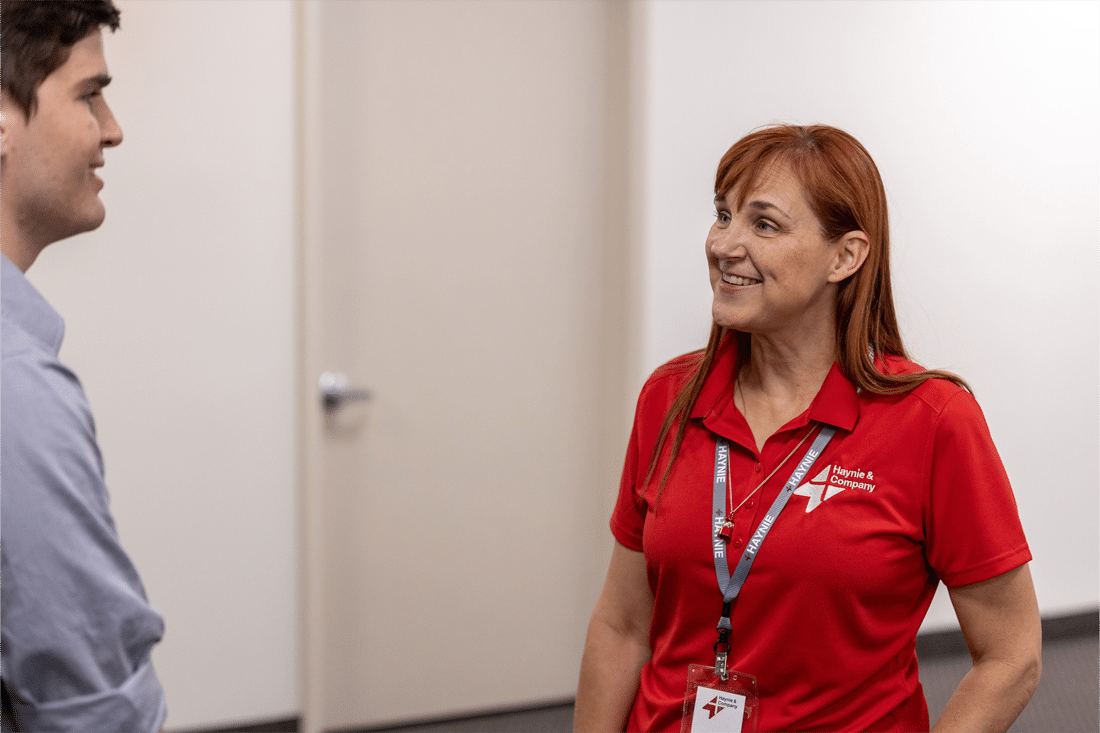
Exceeding Expectations





Every day our CPAs and business consultants exceed expectations by focusing on improving efficiency in our services, providing value, growing relationships, and building trust. We support various organizations in navigating complex challenges, offering tailored solutions that address specific needs and promote efficiency. Optimizing workforce strategies, including insights on employee benefits and HR trends, is crucial for attracting talent and managing costs effectively.

Tax Accounting Services
Our team of CPAs and tax professionals makes it our business to get to know yours. Education plays a critical role in professional development within the accounting field, helping professionals navigate challenges and enhance their career strategies. We build relationships with our clients by providing proactive, year-round tax consulting, preparing and examining financial records, and tailored tax solutions to ensure that businesses and individuals identify opportunities to minimize their tax burden, maximize cash flow and plan for the future.
Audit & Assurance with an Experienced CPA Consultant
Our audit CPAs enhance their assurance services to adapt to emerging opportunities and future challenges. CPAs in the accounting industry face significant challenges that drive personal growth and professional development. Modernizing our audit practice is crucial for firms to meet evolving client needs. Our audit CPAs provide a full range of external auditing, internal auditing, forensic accounting, litigation support, and fraud prevention services. Our audit clients include public and private businesses, employee benefit plans, and governmental entities.


Business Consulting Including Mergers and Acquisitions
Consultants are an excellent resource for companies large and small. Our firm supports career development through its consulting services. We provide specialized business consulting services tailored to different industries, evaluating current processes and creating a winning strategy. Our CPAs are experts in business valuations, family business consulting, mergers and acquisitions, business structuring, and planning.
Client Advisory Services and Management Accounting
Are you worried about making payroll, understanding your financial position, implementing Quickbooks, or finding a competent bookkeeper? Managing costs is a crucial part of an effective workforce strategy. We provide valuable insights to help you make informed financial decisions. Don’t let the stress of staying on track financially hold back your business. Let our knowledge and expertise provide you with the advice you need to assess risk, ensure compliance, and set your business up for growth and financial security.

Other Services We Offer Beyond Tax Season
FINANCIAL PLANNING INCLUDING FINANCIAL STATEMENTS PREPARATION
Haynie Wealth Management provides customized planning and tax-efficient investment strategies. Accountants play a crucial role in preparing financial statements, ensuring accuracy and compliance. Education is vital for professional development within the accounting field, helping individuals navigate challenges and enhance their career strategies.
BUSINESS VALUATION SERVICES
We provide customized valuations that empower our clients to achieve their business objectives effectively. Industry-specific insights are crucial in providing specialized business valuation services. Our firm goes beyond traditional compliance by offering value-added services that help clients navigate complex challenges and identify new opportunities.
Cost Segregation
Our cost segregation can save on taxes by identifying personal assets grouped with real property. Managing costs is crucial for an effective workforce strategy, as it helps balance employee benefits and HR trends while keeping expenditures in check to enhance overall workplace strength. Accountants play a vital role in providing valuable insights for informed financial decisions, ensuring that organizations can optimize their resources effectively.
Peer Review
Our CPAs meet the highest professional standards & ensure quality through peer review. The AICPA plays a crucial role in providing professional development opportunities for CPAs, including free CPE credits. Education is vital for professional development within the accounting field, helping professionals navigate challenges and enhance their career strategies.
Employee Benefit Plan Audits
Our firm provides a variety of services to help you maintain your plan’s qualified status. Managing costs is a crucial part of an effective workforce strategy, ensuring that employee benefits and HR trends are balanced while keeping expenditures in check to enhance overall workplace strength. Accountants play a vital role in providing valuable insights for informed financial decisions, offering strategic advice that goes beyond mere compliance to meet the growing demand for comprehensive advisory services.
Industries We Serve with Public Accounting Services
Our firm offers comprehensive services to developers, owners, property managers, and investors, addressing the unique needs and challenges faced by all key stakeholders in the real estate market. Industry-specific insights are crucial in providing specialized services to different sectors.
We support technology companies in managing rapid changes by providing strategic solutions tailored to their unique needs. Firms are increasingly being sought after to provide value-added services beyond traditional compliance, helping clients navigate a complex and rapidly changing landscape.
Frequently Asked Questions About CPAs
Below we’ve collected a list of frequently asked questions from our clients and prospective customers. To speak with experienced CPAs or CFEs, contact Haynie & Company today. We are expertly trained, accomplished, and capable of delivering accounting services uniquely tailored to you and your business.
What’s The Difference Between A CPA And An Accountant?
All CPAs are accountants, but not all accountants are CPAs. A CPA designation indicates that an individual is a certified public accountant who has met specific state and education licensing requirements and passed a rigorous a CPA license exam. Therefore, a CPA is better qualified than an accountant to perform more advanced accounting duties and to comply with all regulations set forth by the Internal Revenue Service. Furthermore, only a CPA can prepare an audited financial statement or review the financial statement and file reports with the Securities and Exchange Committee (SEC).
What CPA Certifications Or Licenses Do Haynie’s Accountants Have?
Haynie & Company is powered by a reliable team of CPAs and Certified Fraud Examiners (CFEs). Many of our professionals are members of the Institute of Certified Public Accountants (AICPA) as well as their local state societies.
How Does Haynie Help With Business Taxes And Tax Codes?
Tax planning should be done every year. In addition to being a major cost to businesses and individuals, taxes are also a significant stressor. A small mistake could snowball into a financial disaster that throws you off track. Luckily, our team is here to guide you through the complex tax code so that not only are you In addition to complying with all necessary tax laws and regulations, we make sure you’re able to take advantage of tax planning strategies, uncover opportunities to save money, and meet your goals.
At Haynie & Company, we’re committed to ongoing education and transparency. We closely monitor plans from Congress and are available year-round to discuss your specific situation. We also post frequent updates on our website with relevant tax info you’ll need to know.
Is Haynie & Company Hiring?
Haynie & Company is rapidly expanding and looking for talented individuals to join our team. Since our start in 1960, we’ve grown from a single office to multiple locations with hundreds of dedicated employees.
Our firm offers exceptional growth opportunities for professional development, making it an ideal place to advance your career. Education plays a critical role in professional development within the accounting field, helping you navigate challenges and enhance your career strategies. We are committed to fostering a supportive environment where you can thrive and achieve your career goals. The AICPA provides valuable resources for CPAs, including professional development opportunities such as free CPE credits. Join us to be part of a dynamic team that values innovation, collaboration, and excellence.
To explore job openings, please visit our Careers page.

